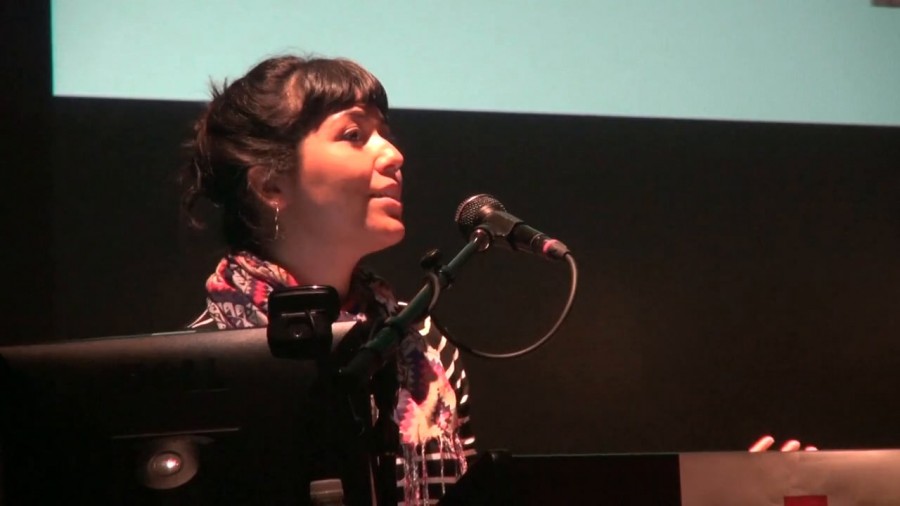I’m Stephanie, and I was invited by p5.js and Lauren to come and speak. I’m just going to talk a little bit about my personal experience, because I am a woman of color in tech.
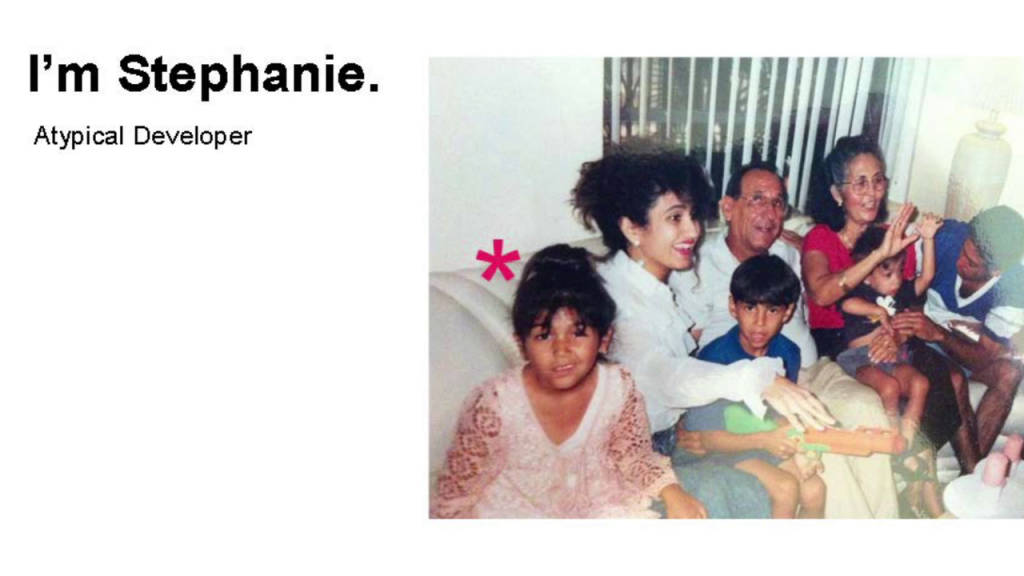
This is me really young. This is my family. I’m what people would consider an atypical developer. I didn’t have a CS degree. I actually only started developing eight months ago. I’m a Latina, so that means that I am one in 3% of developers that are out there working in the field, and I’m the first college grad in my family, and I failed 10th-grade math, so I didn’t have any of the things that people need to become developers. But things happened, and I will tell you about these things now, and I did become one.
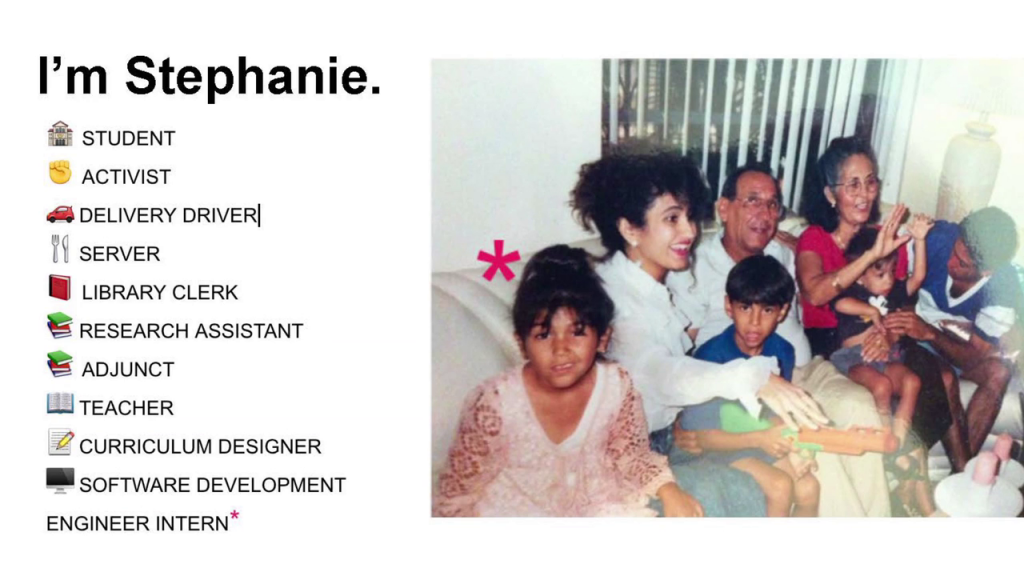
This is sort of a rough sketch of who I am in some sort of professional capacity and who I have been. I’ve been a lot of things, including a delivery driver, a library clerk, and then most recently I was a teacher, a curriculum developer, and now a software development engineer intern. In 2011, I got my Masters in Linguistics, and that was a really exciting time, except that when you have a Masters in linguistics it’s really hard to find a job, so after that I became an adjunct, because that’s what you do. I really loved it, I had awesome students. One of my students actually crowdfunded my way here to Pittsburgh, so that was awesome. I guess I did a good job.
Then after that, I became a curriculum developer, because I did have student loans and things to take care of. This job was inside of the tech space, but not in a tech capacity. I worked hand in hand with developers, and I started to see what these people were doing, and I thought that seemed kind of cool, but I failed 10th-grade math, so I could never be a developer. Of course this was at a startup, so there was that tech culture that is endemic to startups, the brogrammer culture. So that wasn’t super cool, but I was still like, “I wish that I had been born a boy so ghat I could be a developer” and that I didn’t fail 10th-grade math, and all of these things.
So last Fall, in a twist of fate, I became a student again. I was accepted into an all-womens’s tech school called Ada Developers Academy. It’s based out of Seattle, it’s tuition-free, and its goal is to diversify tech, at least through gender. I got accepted, which was crazy. That was a stroke of luck, and today I’m a developer in training at Amazon, so I intern with them, and I’ll be graduating that program in August. I will be the first Latina to graduate that program.
So how did this happen? I visited ITP in 2013. Completely random, I was visiting New York, and I got to see people who were coding who did not look like the people at my startup. Who did not act like the people at my startup. It was a very different program, obviously a lot of artists. That was really interesting to me, and I was like, “Oh. These are atypical developers. Maybe I could be an atypical developer.” So I applied to this program, got accepted, which was a crazy stroke of luck again.
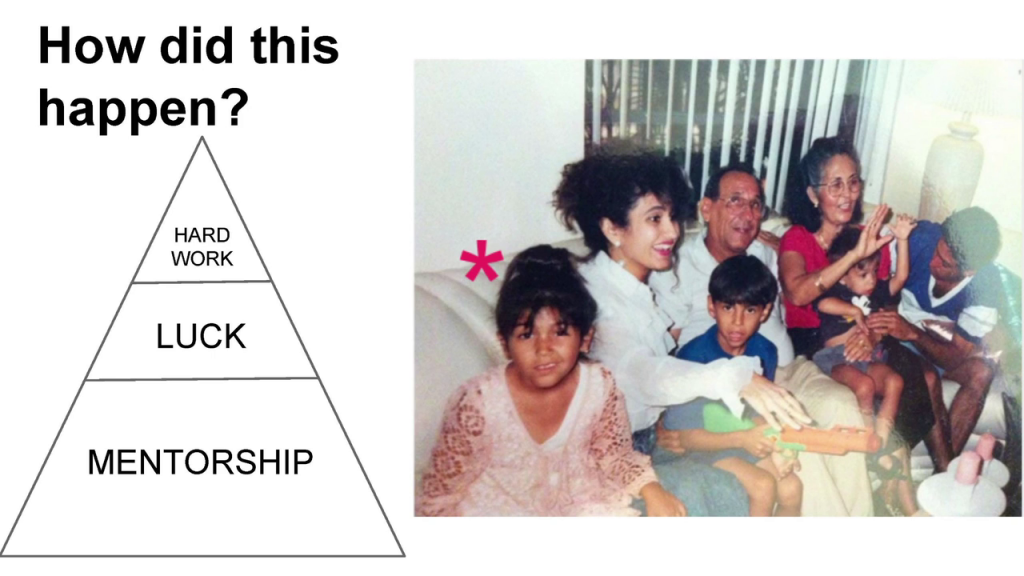
This is what I consider my success pyramid for how it happened, and how it ended up happening for a lot of other women of color who have been to similar programs that I have. It’s that we had mentorships, so we had people that we looked up to that were in the field that could help us, and we had a lot of luck, which is an unfortunate thing to have to need to become a developer. It’s not like when you go to Carnegie Mellon’s web page to apply for a CS degree, it doesn’t say you need luck. But for some people that’s actually what it takes.
And then hard work. Hard work should be the same for everyone, it shouldn’t differ based on race, based on gender. So I’m here at p5.js because I want a success pyramid to look more like this:
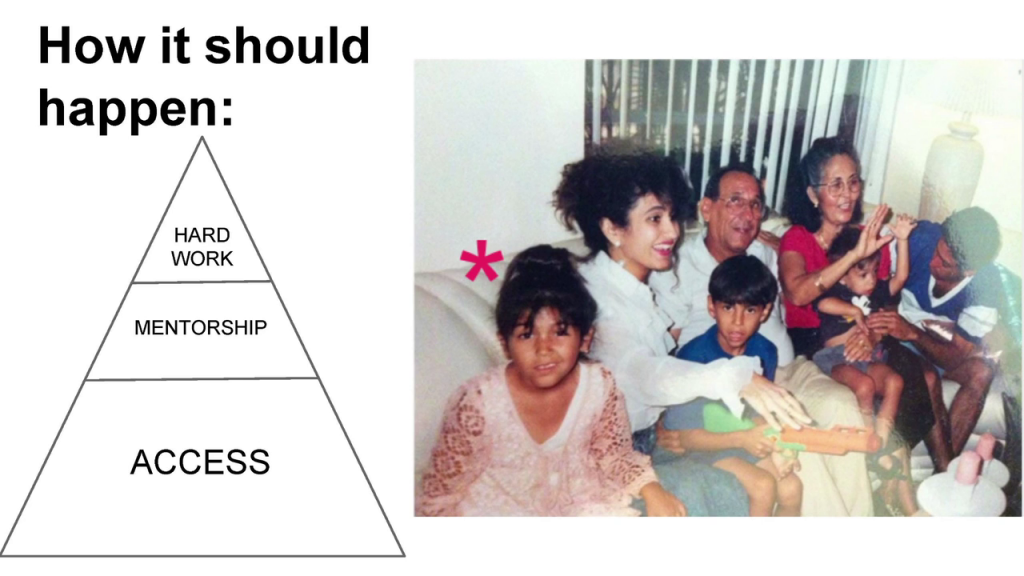
I want access to be the first thing that is really required, and I want access to be available to everyone, including people like snarky seven-year-old Stephanie. Mentorship should still be important, and mentorship should come from people that look like snarky seven-year-old Stephanie. It should [come] from people who look like me, or people that are marginalized, so that you feel like, “I don’t need to be [a] startup brogrammer to make it. I can look like something else.” And hard work in important, and it should be the same for everyone.
So this is the story of how things happened, and I’m really glad that I had all those other experiences, because I still am a lot of the things that I was before. I’m still an activist, I’m still a teacher, I still do curriculum design, but now in the capacity of tech. So I feel like I’m able to reach a lot more people.
That’s my story. Thank you.
Further Reference
Overview page at the Studio for Creative Inquiry’s web site.
